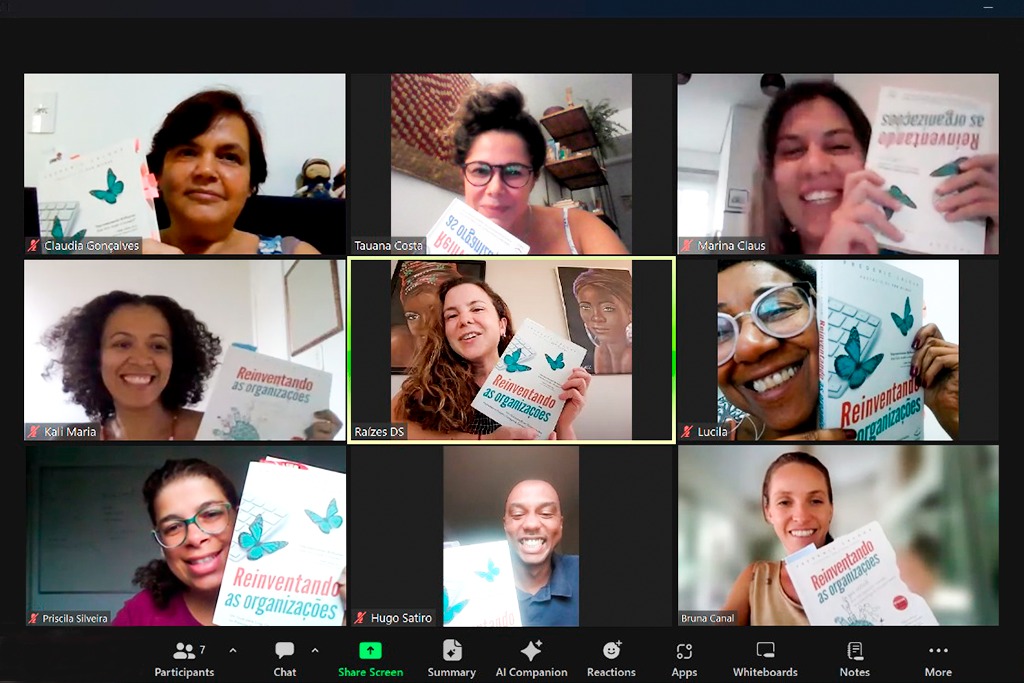
How to reinvent organizations? In March, we finished another reading in our book club. This is the second edition and the book chosen was Reinventing Organizations – A guide to creating organizations inspired by the next stage of human consciousness, by Frederic Laloux.
This book club edition included a four-month monthly meeting and the participation of 10 people, including Raízes’ employees and partners, who were committed to learning a little more and discussing their opinions, drawing parallels with our work.
Connecting Reinventing Organizations to Raízes
Frederic Laloux’s book explores an innovative approach to business management and organization. The author discusses how organizations can evolve into a new paradigm, based on principles of self-organization, self-management, and evolutionary purpose.
Laloux presents a vision of “Teal Organizations”, which operate in a more adaptable, innovative, and meaningful way than traditional models. Teal models speak of regeneration, new contact with life, organic and humanized business management, learning from nature, and the flow of life.
The book also examines case studies of organizations that have adopted these principles and demonstrate the benefits in terms of employee engagement, innovation, and social impact. It challenges traditional business conventions and inspires leaders to rethink their approaches to management, seeking a more holistic and purpose-centered mindset.
According to Laloux, human history can be categorized into different paradigms, identified by a combination of adjectives and colors. The adjectives are selected based on the most prominent human characteristics at each stage, while the colors are used to facilitate the reader’s understanding and orientation throughout the narrative. These paradigms are as follows:
- Reactive – Infrared;
- Magical – Magenta;
- Impulsive – Red;
- Conformist – Amber;
- Director – Orange;
- Pluralist – Green.
Raízes identifies itself as “Pluralist – Green”, which are the practices of organizations that are more social, such as a values-driven culture, social responsibility, and the empowerment of employees.
Insights from those who have read it
“It’s a very inspirational book about how organizations can be run in a way that puts purpose at the center,” said our director Mariana Madureira. She adds: “None of the case studies presented were 100% Teal organizations, but organizations with some Teal practices. In this sense, I see that we already have some internal practices of this model and that we can gradually experiment with incorporating others“.
While reading and debating, our financial expert Cláudia Gonçalves stressed the importance of maturity in implementing the integrality practices discussed in the book, because vulnerability at work can only happen when people don’t have their weaknesses used against them.
For our consultant Tauana Costa, although these practices are difficult to implement, the discomfort of remaining with the current organizational culture (amber-orange) may be becoming greater than the pain of change.
In this sense, we think that creating internal policies – such as the one described in the book to treat any act of invalidating the participation of others as a serious problem – is a first step. But it’s not simple: it requires training and sensitization, practice, and adjustments and only then, over time, will it be incorporated as a culture.
We’ve learned a lot over these four months, and soon we’ll be choosing which book will be the subject of the 3rd edition of the Raízes Book Club.
Check out the book we read in the first edition of the book club here.

